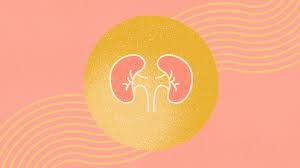The menstrual cycle, typically lasting around 28 days, is regulated by a delicate interplay of hormones. Variations in cycle length are not uncommon, but recent scientific investigations have highlighted that extreme deviations from the average could have broader implications for health. Research now suggests that both longer and shorter menstrual cycles might be associated with an increased risk of heart disease, indicating a deeper connection between reproductive health and cardiovascular well-being.
Menstrual Cycles and Hormonal Balance
A healthy menstrual cycle reflects the body’s hormonal equilibrium. Estrogen and progesterone levels rise and fall, orchestrating the ovulation process and preparing the uterine lining for potential pregnancy. Deviations in cycle length might point to hormonal imbalances, which could impact various aspects of health, including cardiovascular function.
The Study: Exploring the Connection
Recent studies have analyzed the health records of thousands of women to understand the relationship between menstrual cycle length and heart disease risk. The findings suggest that both longer and shorter cycles might be linked to an increased risk of developing heart conditions. While the exact mechanisms are not yet fully understood, hormonal irregularities could be influencing the health of blood vessels, blood pressure, and overall heart function.
Understanding Heart Disease Risk Factors
Heart disease is a multifactorial condition influenced by genetics, lifestyle, and underlying health issues. Recognized risk factors include high blood pressure, high cholesterol, obesity, and smoking. The emerging research suggests that irregular menstrual cycles could be an additional risk factor, particularly for women with consistently longer or shorter cycles.
Long Menstrual Cycles and Heart Disease Risk
Women with longer menstrual cycles, usually defined as cycles exceeding 35 days, might face an increased risk of heart disease. Irregular ovulation or prolonged exposure to estrogen could play a role in affecting cardiovascular health. It’s important to note that further research is needed to establish a causal relationship between long cycles and heart disease.
Short Menstrual Cycles and Heart Disease Risk
On the other hand, shorter menstrual cycles, usually defined as cycles shorter than 21 days, also appear to be associated with a higher risk of heart disease. Short cycles might result from a rapid drop in hormone levels, potentially affecting blood vessel function and heart health.
Hormonal Imbalances and Cardiovascular Health
Hormonal imbalances that lead to irregular menstrual cycles could impact cardiovascular health. Estrogen, for example, has a complex role in maintaining the elasticity of blood vessels and regulating inflammation. Fluctuations in hormone levels could contribute to the development of atherosclerosis and other heart-related issues.
Lifestyle Factors and Heart Health
While hormonal balance is vital, lifestyle factors also significantly contribute to heart disease risk. Maintaining a healthy weight, engaging in regular physical activity, managing stress, and adopting a balanced diet are all crucial for cardiovascular well-being. Women with irregular menstrual cycles should pay extra attention to these lifestyle factors to mitigate potential heart disease risk.
Taking Control: Tips for a Healthy Menstrual Cycle
For women concerned about their menstrual cycle length and heart health, there are steps they can take to promote a healthy reproductive system and cardiovascular system:
- Maintain a balanced diet rich in fruits, vegetables, whole grains, lean proteins, and healthy fats.
- Engage in regular exercise to support hormonal balance and overall well-being.
- Manage stress through relaxation techniques like meditation, yoga, and deep breathing.
- Prioritize sleep to ensure adequate hormone regulation and overall health.
- Consult a healthcare professional if experiencing consistently irregular cycles to address underlying causes.
Importance of Regular Medical Check-ups
Regular check-ups with a healthcare provider are essential for monitoring reproductive and cardiovascular health. If irregular menstrual cycles are a concern, medical professionals can provide guidance, conduct relevant tests, and develop a personalized plan to mitigate potential risks.
Conclusion
The connection between menstrual cycle length and heart disease risk is a compelling area of research that underscores the intricate interplay between hormonal health and cardiovascular well-being. While longer and shorter cycles may be associated with an increased risk of heart disease, further research is needed to establish causality. In the meantime, adopting a healthy lifestyle, managing stress, and seeking regular medical guidance can contribute to both reproductive and cardiovascular health.








